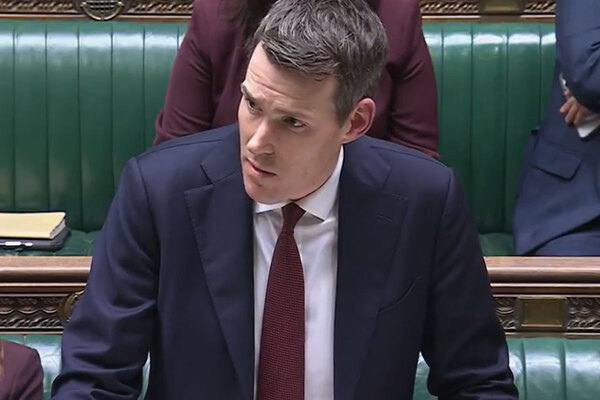You are viewing 1 of your 1 free articles
East Midlands landlord in breach of standards after ‘fundamental breakdown’ in management
An East Midlands landlord has breached governance and viability standards after a “fundamental breakdown” in management, the Regulator of Social Housing (RSH) has said.

Windrush Alliance UK, a small landlord based in Nottingham, was criticised for uncertainty over management, unreliable accounts and lease deals. Data failures were so great that it was “unsure of the number of properties it owns or leases”, the RSH said.
Windrush became a registered social landlord in 2011. It provides general needs, supported housing and non-social supported exempt accommodation. Its housing is primarily delivered through leasing properties from third parties that are then made available to tenants.
According to its most recent data return, it had 458 units of social housing and 1,621 units of non-social housing. The regulator does not issue governance and financial viability grades to providers with fewer than 1,000 social units.
The landlord referred itself in mid-June to the RSH, which began an investigation. In a notice published today, the regulator said there had been a “fundamental breakdown” in the landlord’s governance and financial mismanagement arrangements, which put the continuity of services to residents at risk.
Uncertainty regarding board-level control and the make-up of senior management was identified, while legal disputes arose in relation to issues regarding overall control of the organisation.
“This is a clear breach of the governance and financial viability standard,” the RSH said.
Windrush, which now has a new board and management team, acknowledged the extent of its failure to meet the standards and has made a commitment to undertake the work necessary to come back to compliance, the regulator said.
However, because of its historic failings, the new board does not have reliable data or information on which to run the business. “The financial information we have been given presents a picture of an organisation without the basic information needed to adequately manage the finances of a registered provider,” the RSH said.
The notice said that Windrush was unsure of the number of properties that it owns or leases and was “struggling to provide basic information on its properties.”
Windrush has also not been able to demonstrate that its rents are below market rate and so it has not demonstrated that relevant homes can be classified as social housing, the regulator found.
Management accounts seen to date are “unreliable” and “do not present a true picture of the organisation’s finances”. There are “a number of ongoing contractual disputes with a range of external bodies” and Windrush “does not have the data or information to understand the extent of its liabilities or monies owed to it”.
“For this reason, we are concerned about the ongoing solvency of the organisation and its long-term future,” the regulator said.
The landlord used a unique operating model in many of its leased properties where service-level agreements signed by Windrush “effectively cede control of many regulatory and legal obligations to third parties”.
The RSH said: “We lack assurance that Windrush has not inappropriately advanced the interests of third parties in its lease deals, connected party transactions nor inappropriate payments to both internal and external individuals.”
Additionally, the regulator said it lacked assurance that Windrush had been managing its health and safety obligations adequately or that tenants were safe in their homes.
“We have seen no assurance this is monitored and overseen at board level,” it said. “We have asked for assurance regarding compliance with statutory health and safety requirements and Windrush has not been able to provide any evidence of this.”
The RSH is now “engaging actively with the new board and management team” at Windrush to “ensure they make the substantial changes required.”
Harold Brown, senior assistant director for investigations and enforcement at the RSH, said: “We have found very substantial failings at Windrush across a range of regulatory standards. The new board and management now need to make significant changes across all areas of the business so that they comply with our standards. We will be actively monitoring them to ensure they put things right.”
Martin Billingham, interim chief executive of Windrush Housing since mid-June 2023, said: “Myself and the board fully accept the findings of the regulatory notice and wish to restate our commitment to working with the regulator to address the issues we first identified and self-reported.
“New board members were appointed in mid-May, followed by a new management team in June. Since their appointment, our immediate focus has been to work tirelessly to ensure the continuation of resident accommodation and services, to build an accurate picture of historic decisions and to fill the gaps in data and procedures that the regulator has rightly identified should have been in place.
“We are committed to working transparently with the regulator, and our engagement and positive working is recognised within the regulatory notice. This commitment is reflected in our weekly updates to the regulator on our 18-month robust improvement plan and current skills gap analysis to help further strengthen our governance.
“With a new chair and management team, we are focused on improvement and have already made significant changes to resources, lease arrangements and financial stability. There is a lot of work to be done, and we welcome the regulator’s, our local authority partners’ and our managing agents’ support in ensuring residents housed by Windrush are protected and able to maintain access to safe, affordable accommodation. We will be open with our findings and comply with legal and regulatory investigations into any historic actions.
“I can reassure funders, customers, partners and colleagues that Windrush Housing has a clear, robust improvement plan and there is no additional risk highlighted within the regulatory notice other than those we are already actively managing and prepared for.
“Windrush Housing was born of a desire for fair and equal treatment of disadvantaged residents, and ensuring the funds and processes are in place to continue to do this, and sharing lessons learnt with the sector, is important to the new board and management.”
Sign up for our regulation and legal newsletter
Already have an account? Click here to manage your newsletters











